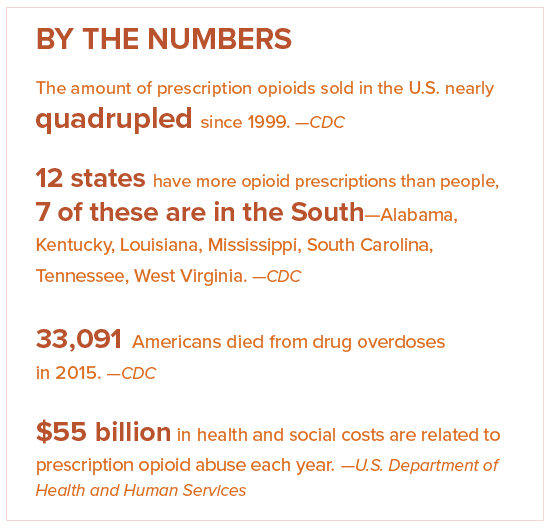Conference confronts South's opioid epidemic

The opioid epidemic that is ravaging the country is hitting some areas of the South particularly hard. The region is experiencing dramatic increases in rates of overdoses, hepatitis C, and neonatal abstinence syndrome. Concerns about possible future trajectories for the Southern epidemic are high because the region has historically invested less in its public health and drug treatment infrastructure than other regions.
To begin to address the epidemic, Rollins hosted a two-day conference, "The Southern Opioid Epidemic: Crafting an Effective Public Health Response." Organized by Hannah Cooper, with colleagues from New York University, Vanderbilt, and the University of Arkansas, the conference drew academic researchers, state and municipal health department scientists, and leaders from multiple federal agencies, including NIH, CDC, and the National Institute on Drug Abuse. The goal was to foster collaborations on research and interventions. "People are already starting to put together proposals that grew out of the conference," says Cooper, associate professor and vice chair in behavioral sciences and health education. "We will continue to check in with the working groups that have formed and see how we can support them going forward."
Investigators also connected with funders, gaining valuable insight into their priorities. Although there is uncertainty about public health spending under the new administration, federal funders at the conference were eager to support researchers' efforts. "There is actually bipartisan support for addressing the opioid epidemic as a public health crisis now," says Cooper. "That's partially because the opioid epidemic is hitting areas that have historically voted Republican—Southern and rural counties."
Funding for the conference came from the Emory Conference Center Subvention Fund, which is awarded by the university's Center for Faculty Development and Excellence.

